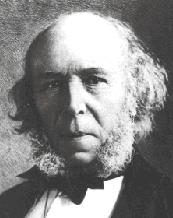I’m a big fan of Philip Pullman’s His Dark Materials series, which has been called the “anti-Christian answer to Narnia.” (Though I’m a big fan of Narnia too. Knee-jerk pro-Christian attitudes and knee-jerk anti-Christian attitudes are both impediments to literary enjoyment, among other things.) It has also inevitably been compared with the Harry Potter series, though IMHO it’s much better written.
The books (mainly a trilogy, though there’s a fourth book of sorts, and rumors of a fifth on the way) take place in a parallel universe in which everyone’s soul is externalised in animal form (think “familiars”), and follows the adventures of a girl who may hold the secret to … well, it’s a long and complicated story, involving witches, gypsies, balloons, trepanning, talking bears, homosexual angels, human sacrifice, the rooftops of Oxford, holes in the fabric of reality, the I Ching, original sin, mental illness, the afterlife, lapsed nuns, Neanderthal skeletons, a frail and senile Jehovah, and a substance called “dust” which bears some resemblance both to the “dark matter” of contemporary physics and to the Jain version of karma. (Some plot points seem borrowed from Steven Brust’s To Reign in Hell.)
The theme of the series is the interplay between what Blake called “innocence” and “experience,” and the danger of overvaluing the former at the expense of the latter. At the end of the day I’m not sure that Pullman offers a coherent account of these two concepts, or that the ethical outlook of the third book can be reconciled with that of the first two, but the books are terrific nonetheless. The series is marketed as children’s fiction, but there’s nothing essentially juvenile about it.
The title comes from these lines of Milton’s:
Into this wild Abyss,
The womb of Nature, and perhaps her grave,
Of neither sea, nor shore, nor air, nor fire,
But all these in their pregnant causes mixed
Confusedly, and which thus must ever fight,
Unless th’ Almighty Maker them ordain
His dark materials to create more worlds –
Into this wild Abyss the wary Fiend
Stood on the brink of Hell and looked a while,
Pondering his voyage
Anyway, the first book, The Golden Compass (known as Northern Lights in England), is being made into what looks to be a beautiful, well-cast, and fairly faithful movie; check out the poster and trailer.
Some comments from the filmmakers have suggested that they plan to tone down the anti-Christian content. Other comments from the filmmakers have suggested that they don’t plan to do so. There’s not much anti-Christian content in the first book, though, so we’ll have to wait for the later films to see. (Some fans have also wondered how the films will handle the ending of the last book, which seems to imply sexual intercourse between the two main characters, both about thirteen years old. But that’s easy. The books take place within a few weeks of each other, but the studio plans to make its three films one every two years: thus by the time they get to the third film the stars will be 18.)
In other news, here’s the trailer for the new Clone Wars cartoon series, which seems to take place in the chronological interstices of the old one.
More clone wars? Hmm. That’s one period of Star Wars history that I don’t really feel I have a whole lot of still-unsatisfied curiosity about. Oh well.
 First: Spencer was in fact Victorian England’s leading opponent of imperialism; in
First: Spencer was in fact Victorian England’s leading opponent of imperialism; in